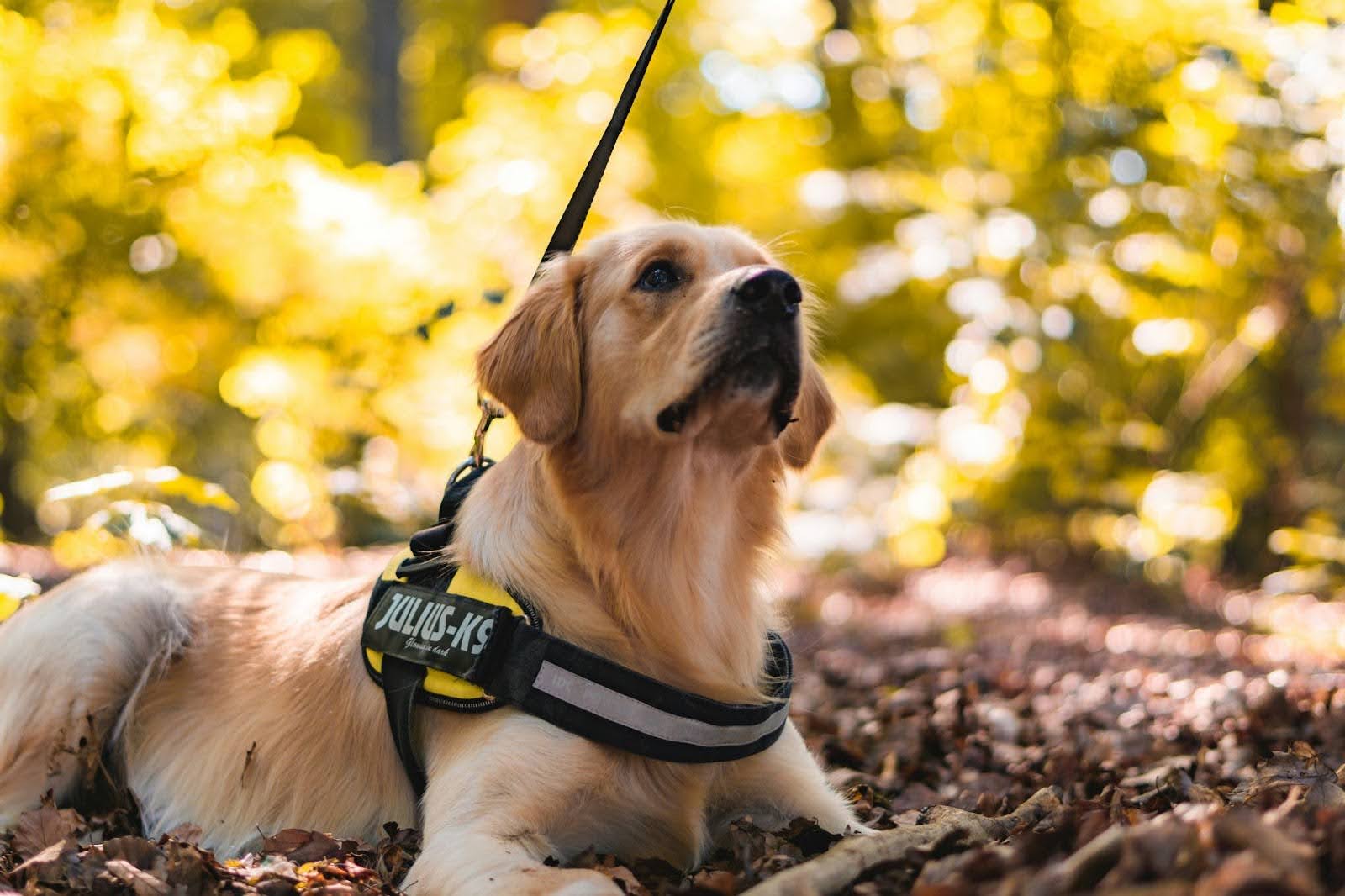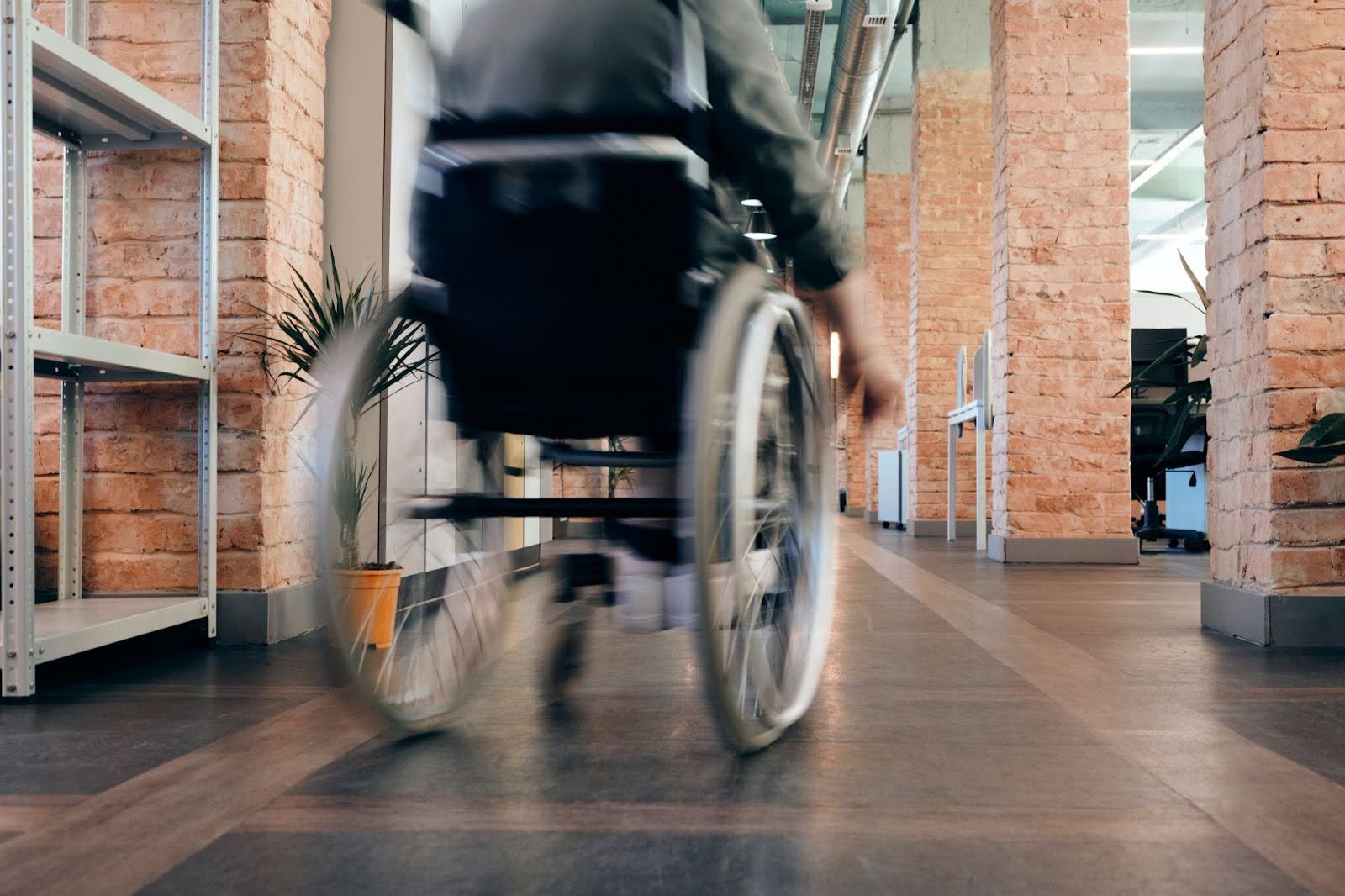The Americans with Disabilities Act (ADA) defines a service animal as “any dog that is individually trained to do work or perform tasks for the benefit of an individual with a disability.” So, the purpose of service animals is, by definition, to assist people with disabilities.
Service animals are essential resources for many people with disabilities. Research shows time and time again that disability service animals can make a significant difference in safety and quality of life.
What Are Service Animals?
Despite their prevalence, service animals are surrounded by misinformation. You might be surprised to learn how few specific rules there are for potential service animals.
Legally speaking, and according to the ADA, service animals are:
- Any breed and size of dog
- Trained to perform a task directly related to a person’s disability
On the flip side, service animals are not:
- Emotional support animals
- Required to go through a professional training program or certification process
- Required to wear a service animal vest or ID
What kind of animals can be service animals?
The ADA states that other species of animals – wild and domestic, trained or untrained – are not considered service animals. However, the ADA does note one possible exception: miniature horses.
.jpg?width=1600&height=1066&name=unnamed%20(20).jpg)
Just like businesses and facilities can choose not to let in dogs when they fundamentally alter how the space functions, they can choose not to allow mini horses. For instance, a service mini horse may not be allowed in a zoo because its presence may disrupt how the facility functions.
Aside from these exceptions, businesses and public spaces are required to allow service animals to enter.
What about emotional support animals (ESAs)?
There’s a lot of buzz around emotional support animals, also known as “comfort animals” or “therapy dogs.” ESAs are not considered service animals under Titles II and III of the ADA.
While ESAs can provide companionship and benefit those they work with, their tasks are not considered directly related to an individual’s disability. That means ESAs are not subject to the same legal protections as service animals.
Unfortunately, a doctor’s note does not turn an ESA into a service animal. It also does not require businesses and organizations to allow the animal(s) in question.
How Do Service Animals Help? What Do They Do?
Since all service animals are, by nature, service animals for disabilities, they specifically help remove obstacles and provide support to those who need it.
If you can think of it, a service animal can probably help you do it. That makes service animals invaluable tools for folks with disabilities. Trained service animals may be able to:
- Retrieve objects for those with limited mobility
- Pull wheelchairs
- Remind a person to take their medication
- Alert a person to oncoming medical issues (panic attacks, fainting episodes, seizures, etc.)
- Seek help from others when a person is experiencing a health problem
- Help those with vision impairments safely navigate the world
How Do Service Animals Benefit People with Disabilities?
We know that service animals perform specific tasks that help people with disabilities lead healthy, happy lives. But how do service animals help people with disabilities overall? In other words, what are the long-term benefits of service animals and their work?
Life-Saving Interventions
The ability to detect potential health problems, alert others, and protect someone in need can help service animals save lives.
A service dog might warn their handler that a health concern is arising. They also might help a person with disabilities safely get onto the ground to avoid falling or run to get help when they sense their handler needs it.
Personal Freedom & Autonomy
The assistance service animals provide helps many people with disabilities live independently. Since service animals for disabilities can intervene in emergencies, they act as an alternative to medical supervision or other forms of assistance.
Companionship
Research shows that service animals impact their handlers beyond their disability-related tasks. One study found that working with service animals leads to better functioning at work, school, and in life overall.
Plus, living with a disability can be an isolating experience – who better to keep you company than a beloved, four-legged friend?
Accessing Service Animal Support Near You
Finding a service animal or working to train one can be tricky, especially if you’re not sure which resources are available to you.
At NeuroNav, we work closely with those participating in California’s Self-Determination Program, which connects people with disabilities to the resources they need to achieve their goals.
Service animals and other forms of support may be accessible to you – the only way to find out is to ask. Our team can help you navigate questions like these and direct you to resources that can help. Contact us to schedule a free consultation to learn more.




